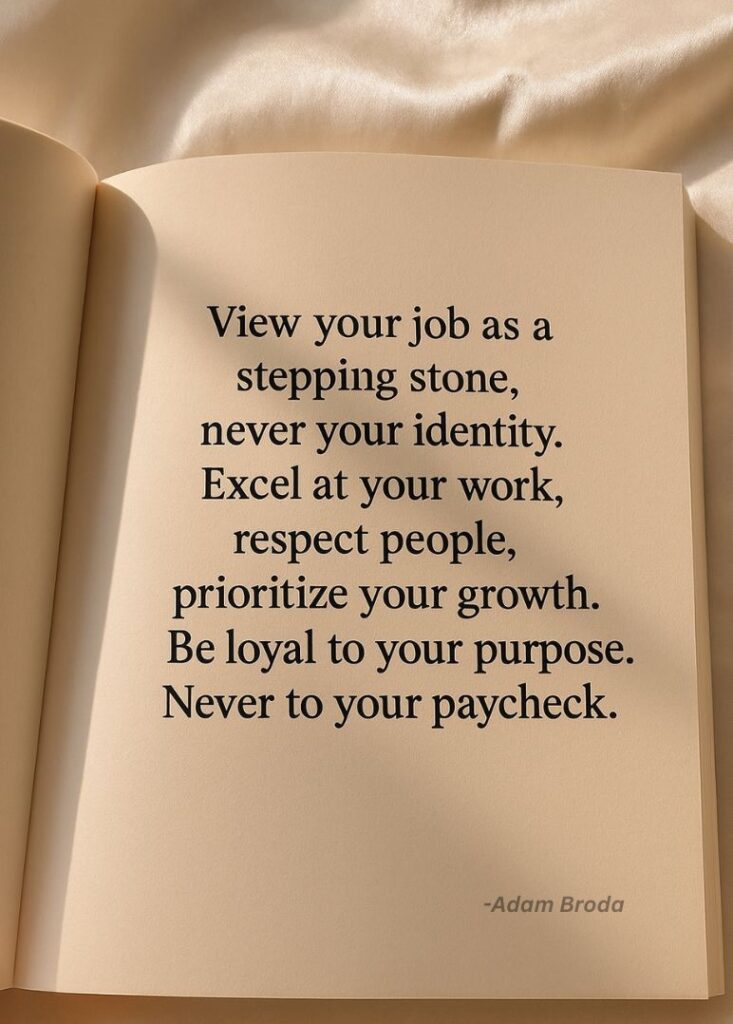If you’re a writer with a day job, it’s easy to feel trapped. Every hour you give to someone else can feel like an hour stolen from your own words. You clock out tired, stare at the page, and wonder if you’re ever going to have enough time or energy left to make this writing thing work.
Here’s the truth: your job doesn’t have to be a cage.
It can be a stepping stone, part of the path that leads you where you want to be.
I’m been there myself— forty-hour weeks and writing and coaching around the outside of that. I spent years telling myself I’d “write when I had time.”
The shift happened when I stopped treating my job as who I was and started treating it as what it really is: the thing funding who I want to be.
This quote from Adam Broda sums it up perfectly:

Here’s how that looks when you’re a writer.
View your job as a stepping stone, never your identity
Your job is not who you are. It’s not your label, your meaning, or your story. It’s the thing that pays for your laptop, your coffee, your quiet mornings, and your craft books.
You are a writer because you write—not because of what’s on your payslip.
Your dayjob isn’t at the core of you. It’s just at the core of your financial structure.
When you start seeing your job as a stepping stone, the frustration eases a little. You stop asking “Why am I wasting my life here?” and start asking “How can I use this to get where I want to be?”
Excel at your work, respect people
Do your job well. Burning bridges won’t help your future self. You never know when you might need a flexible schedule, a sympathetic manager, or simply goodwill from the people around you.
Always remember this: you’re not excelling for their sake. You’re excelling because a stable job is what funds your real work—your writing.
Prioritize your growth
Growth doesn’t have to mean climbing the corporate ladder. For a writer, it might mean the opposite.
If you’re so drained after every shift that you can’t string two creative thoughts together, consider what growth really looks like.
Maybe it’s finding a less demanding role. Maybe it’s stepping sideways into something with fewer hours, even if it pays less. The job that leaves you energy to write is worth far more than the one that throws a few extra dollars at you but eats your creative drive alive.
Maybe it’s a different career.
I used to work in IT. Hard, financially rewarding work.
These days? I make less in a week than I used to make per day.
I have the mental energy to write though. That matters more to me.
Be loyal to your purpose. Never to your paycheck
Your paycheck matters—but it’s not why you’re here. You don’t owe your job your soul.
Show up. Do good work. But don’t sacrifice your stories for overtime just because it’s offered. Every “yes” to an extra shift is often a quiet “no” to your writing.
Your loyalty belongs to your purpose—the stories only you can tell—not to your bank account.
One Question for You
This week, look at your day job differently. Ask yourself:
“What can I make smaller, easier, or lighter here so I can put more of myself into my writing?”
Your job pays for today.
Your writing builds the life you want for tomorrow.